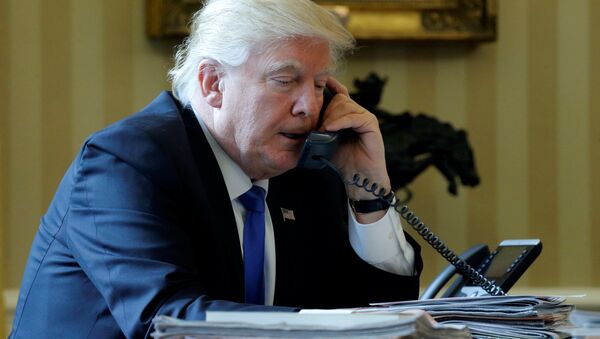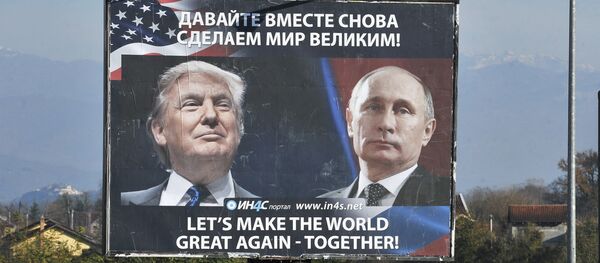MOSCOW (Sputnik) — White House Press Secretary Sean Spicer also refused Thursday to comment on allegations made by anonymous US officials claiming that Trump spoke negatively about the New START treaty during his January 28 phone call with Russian President Vladimir Putin.
"I would not formulate any positions as of now. We had a certain pause in strategic security dialogue, therefore, of course, so to speak, in terms of the break there is a need for a certain update, a mutual information update on the positions. This [dialogue] depends on our US partners. And we will obviously need contacts on the matter," Peskov told reporters.
Peskov said he would not comment on reports of US President Donald Trump criticizing the New Strategic Arms Reduction Treaty (START) to Putin.
"I could not confirm this. Everything we felt was needed to report on the results of the telephone conversation we have reported. There is nothing more to add," Peskov told reporters.
The Strategic Arms Reduction Treaty treaty requires the parties to the contract to reduce and limit the number of deployed and non-deployed strategic offensive arms. It stipulates that the parties may agree to extend the treaty for a period of no more than five years.
Before the end of his tenure, former US President Barack Obama had made a proposal to continue reduction of nuclear arsenals of both Russia and the United States. The Russian side has rejected the proposal citing a number of unresolved issues in bilateral relations, such as extension of the US missile defense system. Washington has also attempted to prolong a treaty, however the Russian Foreign Ministry said that it had not received an official proposal.


